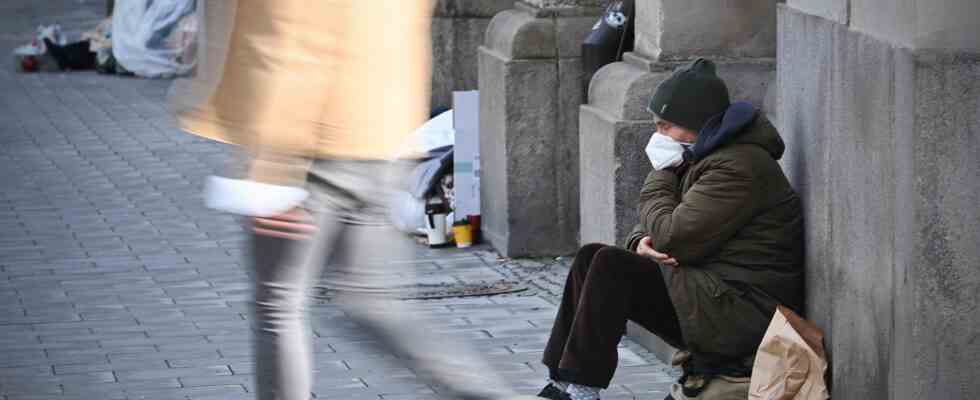Status: 11/24/2022 2:33 p.m
The poverty rate in Germany has continued to rise over the past decade. The financial gap for households below the poverty line has increased by a third. A study sees this as a threat to democracy.
In Germany, more and more people are living in poverty. This is the result of the youngest Distribution report of the Economic and Social Science Institute (WSI) the union-affiliated Hans Böckler Foundation. The proportion of very poor people who have less than 50 percent of the average income at their disposal increased by a good 40 percent between 2010 and 2019. The financial backlog of households below the poverty line has increased by another third.
“The social stress test continues due to record inflation and the corona pandemic,” says WSI Director Bettina Kohlrausch. Even in times of economic stability, the poor sections of the population have continued to grow and have noticeably restricted social participation for many.
Poor people are those who have less than 60 percent of the median net income in Germany. According to the Federal Statistical Office, that was 1,251 euros per month for a single person in 2021. At the beginning of the last decade, 14.3 percent of the people were statistically poor. In 2019, the figure was 16.8 percent.
Serious consequences – middle class increasingly affected
Having little money available affects all areas of life. Households with a net income of less than 2,000 euros a month have “poorer health, fewer educational opportunities and are generally less satisfied with their lives,” says Kohlrausch. The average net income per household was 2018 around 3700 euros per month.
Even before the crisis, people with little disposable income were often doing without everyday things. For example, heating the home appropriately or buying new clothes and shoes. Only every second low-income household even thinks about going on vacation.
The sharp rise in costs since 2020 means that more and more people with middle incomes are feeling the pressure to save and are doing without or at least reducing a lot. In households with a net income of up to 3,500 euros, around one in three wants to cut back on grocery shopping.
Little material participation leads to doubts about the system
Earlier surveys have already shown it, but the current study by the WSI shows it again clearly: Those who can only participate little in the prosperity of a society tend to question the system as a whole.
Only around two-thirds of people below the poverty line consider democracy to be the best form of government. 59 percent think democracy in Germany works well. That is 11 percentage points less than in the general population. “Poverty and social polarization can shake the very foundations of our society,” especially if they become entrenched, says Kohlrausch.

